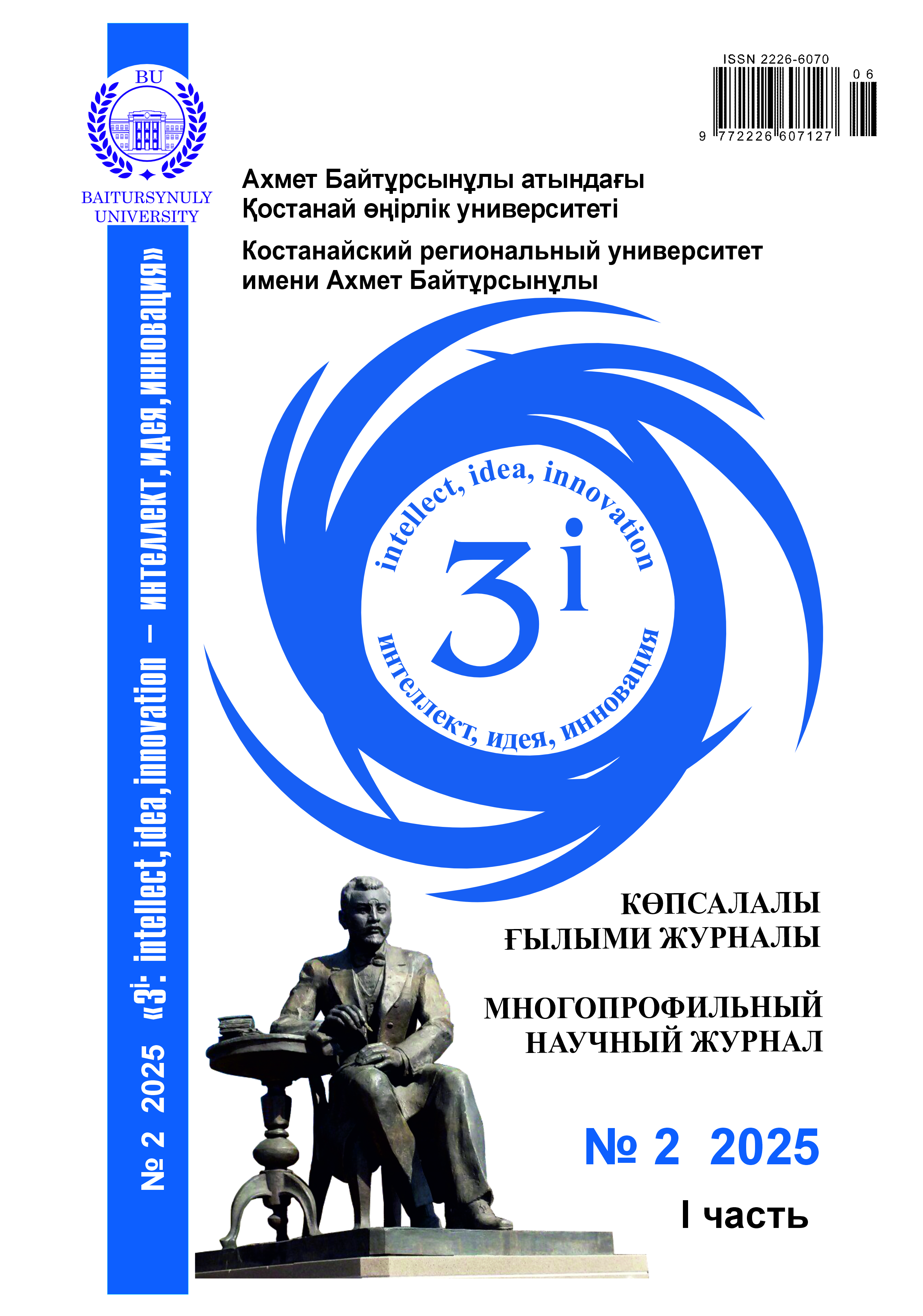ҚАЗАН-ТАТАР ТҮРКІТАНУ МЕКТЕБІ: ҚАЛЫПТАСУЫ ЖӘНЕ ҒЫЛЫМҒА ҚОСҚАН ҮЛЕСІҚОСҚАН ҮЛЕСІ
DOI:
https://doi.org/10.52269/RWEP2521231Кілт сөздер:
түркітану, Қазан мектебі, ғылыми мұра, мәдениет, тіл, ұлттық бірегейлікАңдатпа
Ғылыми мақала Қазан қаласындағы түркітану ғылымының қалыптасуы мен дамуын зерттеуге арналған. Ғылыми дәстүрлер мен ұлттық болмыстың өзара байланысына ерекше назар аудара отырып, қазан ғалымдарының түркі тілдерін, әдебиетін, мәдениеті мен тарихын зерттеуге қосқан үлесін талдау әрекеті жасалды. Негізгі назар – К. Насыйри, В. Радлов, А. Н. Самойлович сынды мектептің көрнекті өкілдерінің ғылыми еңбектеріне, сондай-ақ зерттеудің заманауи бағыттарына аударылған. Авторлар қазан-татар түркітану мектебінің Ресейде және одан тыс жерлерде түркітанудың дамуына әсер еткен бірегей мәдени-ғылыми құбылыс ретіндегі маңыздылығын атап көрсетеді. Материалды талдау қазан-татар түркітану мектебінің қалыптасуының тарихи алғышарттарын көрсетуге мүмкіндік берді. Бұл мақала авторлары XVIII–XX ғасырлар аралығындағы Қазан-татар түркітану мектебінің дамуының негізгі кезеңдерін талдап, мақала аясында оның қазіргі түркітану ғылымына тигізген әсерін анықтады. Алынған қорытындылар гуманитарлық ғылымдар саласындағы зерттеушілер үшін қызығушылық тудырады және түркітану зерттеулерінің әрі қарай дамуына ықпал етеді. Бұл мақалада шығыстану тақырыбын, соның ішінде түркітану бағытын зерттеген белгілі ғалымдардың еңбектерін қарастыруға талпыныс жасалды. Зерттеу тек Қазан университетінің аясымен шектелмейді. Түркі-татар халықтары көп қоныстанған мемлекетті басқару, сондай-ақ империялық, миссионерлік-орыстандыру және отарлау саясатын жүзеге асыру үшін бағындырылған этностардың тілін, мәдениетін, салт-дәстүрі мен тарихын білу қажеттілігі атап өтіледі. Осы тұрғыда Қазан-татар түркітану мектебінің қалыптасуы мен дамуы ерекше маңызға ие болып, отандық шығыстану жүйесінде маңызды элементке айналды. Мақалада аталған мектептің қалыптасуы, ғылыми дәстүрлері мен түркітану зерттеулеріне қосқан үлесіне кешенді талдау жасалған. Бұл тақырыптың қазіргі кезеңде өзекті екені атап өтіледі, сондықтан оны гуманитарлық ғылымдар аясында әрі қарай зерттеп, зерделеудің маңызы зор




